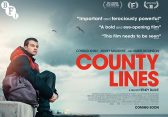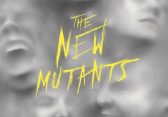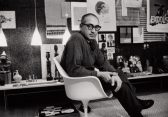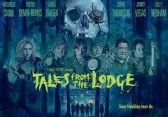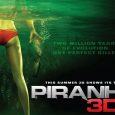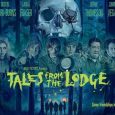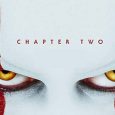June 10th, 2009: The date when the first Shutter Island trailer surfaced online. If I remember correctly, I first saw the trailer on the big screen attached to Public Enemies, which had a UK release date of 1st July. The end of the trailer says “October”, so obviously that was the release date. Well, as you may or may not know, it got pushed back to January for reasons that I did not understand; even after reading the official statement that Paramount issued for the delay. November came, and as the release date finally was in sight, it was pushed back again to March. Rather than anticipating it more, I got bored and frustrated with the constant release date change. At the same time, I was getting worried that it wasn’t half the film the company was expecting from such a prolific director as Scorsese. Thankfully, now that the movie is available to UK audiences, this is not the case. However, neither is it the masterpiece it has hyped up to been. But it’s close.
Based on the novel of the same name, Shutter Island is set in 1954 and stars Leonardo DiCaprio as Teddy, a “US Maaashaaal” sent to a mental institution located on a stretch of land with a partner to investigate a disappearance from the building. Problem is, the island is situated in the middle of the sea, and the escaped patients room was locked from the outside, with the only window having a bar across it. “It’s like she evaporated, straight through the walls” claims the warden, played to eerie perfection by Sir Ben Kingsley. And to start with, it seems to be an impossible scenario. But as more of the story is unravelled, Teddy starts to question further events taking place on the island. And in a place where everyone but you is crazy, the truth starts to become more and more difficult to uncover, and what started as a simple missing persons case turns into a living nightmare for the Marshall.
This is exquisite intricate storytelling by the master of modern cinema. Scorsese is no stranger to complex narratives; The Departed isn’t exactly as straight forward as first suspected. And in less able hands, Shutter Island probably would have failed. I felt like: “I haven’t got a clue where this is going, but I trust the director to know where he’s taking the film”. Because I genuinely could not uncover the whole story up until it was revealed. And that is a skill to do in itself: to keep the audience guessing and intrigued. Even now, I don’t think everything was tied up to a conclusion where everything works out fine. I still think there is more to the story than I first saw, which will warrant a second viewing. This works in favour of the film as well as against it: at times I thought it was trying to get too complex for its own good, bringing in further plot devices that it could easily have done without. Nevertheless, I can’t fault the story: it demands your whole attention and doesn’t let hold until you leave the screen.
Not only is the story solid, the island design is incredibly claustrophobic. Almost a clone of Alcatraz, Shutter Island has three cell blocks: A, B and C. A and B are gender specific, but C is an imposing building that holds the most dangerous patients. Where A and B look like campsite dormitories, C’s exterior is a moss covered, castle-like structure. And Cell Block C also holds the movies biggest disappointment.
The inside is no where near as frightening as the outside suggests – just dripping corridors and a crossover walkway. There are a few shots of “crazy” people, but they hardly look dangerous; some are naked and dithering. And on a different note, I don’t know where he got his matches from, but they are extremely powerful. Just one lit up an entire cell. The scenes in question would have actually benefited from less light, rather than Scorsese adding more with the matches.
The performances are excellent from all involved. There isn’t one cast member who lets the rest down – they are all exceptional. But full credit goes to DiCaprio. His range of emotions is showcased excellently here, and although I was aware he is a talented actor, here he puts on possibly his best performance of the last 10 years. His talent shines most during the second half of the movie, as more is getting revealed. Mark Ruffalo, who plays his partner Chuck, fits the role fine, and the chemistry between the two is outstanding.
There are a fair few references to other similar movies or directors in here, Hitchcock being the most noticeable. The (at times) exaggerated soundtrack especially gives this away, but there are direct nods to him too (a shower scene recreating one of the most imaginative shots for that time). But what this lacks is the tension and suspense that Hitchcock managed to build in his pictures. From the trailers I was expecting a sense of dread and the occasional “jump”, but there were kept to a minimum of one. It seemed like the focal point of the entire thing was to try and explain the story accurately, compromising on the emotional connection between character and audience as well as tension.
Nevertheless, Shutter Island is a success. Although I would have preferred to see it on the intended release date, as delaying it massively increased my expectation to admittedly high levels. To be fair though, it almost reached them, but there is still just something about it that I cannot quite put my finger on that keeps it from hitting that 5 star rating.
Still, Shutter Island is certainly one trip worth making and returning to for full understanding. I doubt Teddy would agree though.



